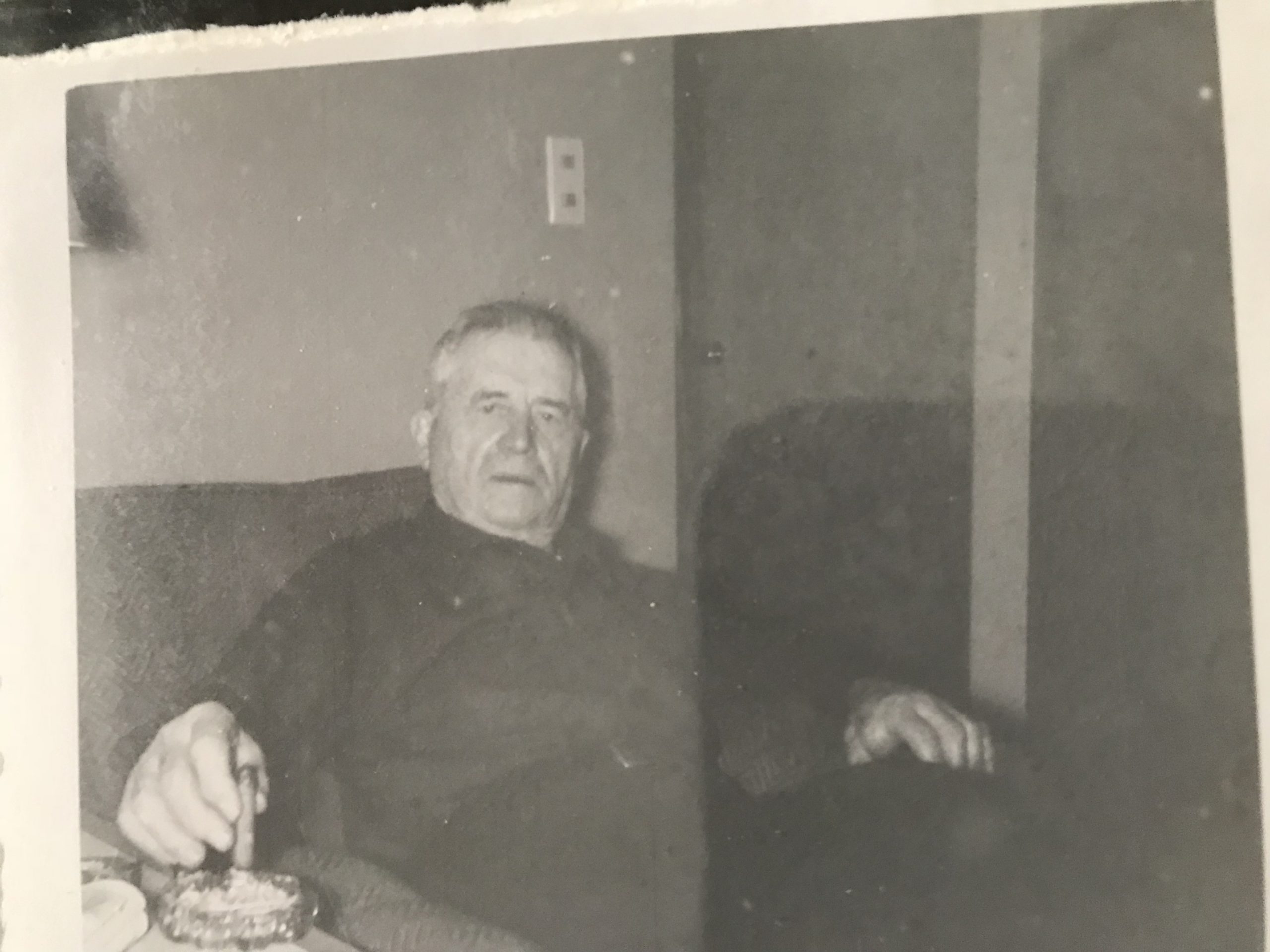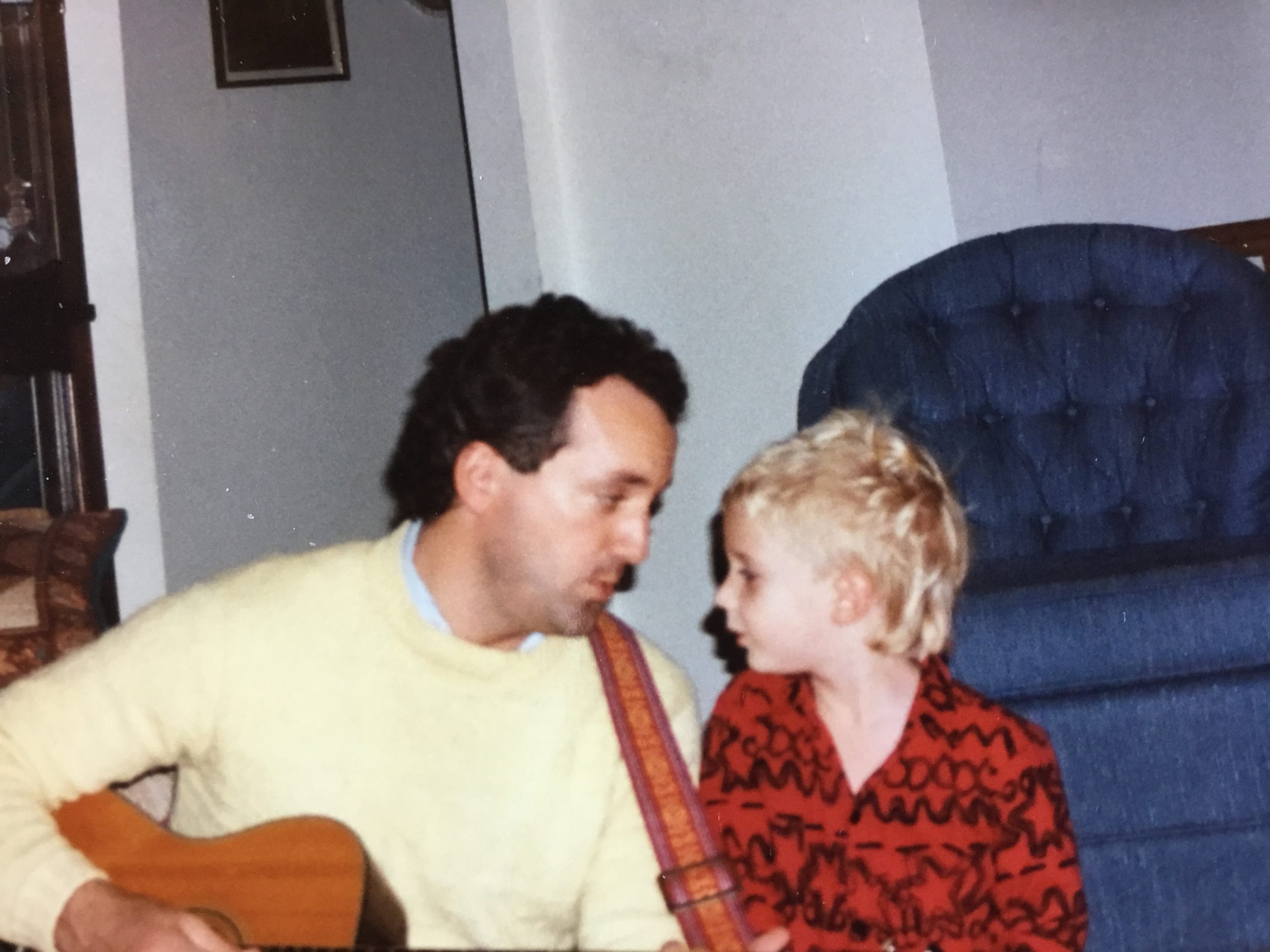When Alex married Lindsey Murphy, our family got introduced to long distance running. Lindsey picked up competitive running in her junior year of high school. We all found out she was really, really good. In Lindsey’s first year of college, at Lake State in the Northern Peninsula of Michigan, Jayme, Alex and I were at the meet where she broke the school record for the two mile. Unfortunately, a senior team mate was slightly ahead of her and got her name in the record books.
Lindsey, and her brothers Josh and Sean, ran distances seemingly without effort. They formed a team and ran across the state once. Stories of Josh finding a place to number two while running in the country were a source of enjoyment.
Never an accomplished runner, I think the most I had ran by that time would have been three miles, I was intrigued to hear them talk. They frequently didn’t talk about how far they would run, but how long they would run, as in “I went and ran 30 minutes”. For some reason, that sounded more possible. I couldn’t run a long distance, but could I run for 30 minutes, or 20, or 15?
We already had a membership at the Lapeer County rec center, so I decided to use it. There is an indoor track where 13 laps equals a mile. I decided to run 20 minutes. I didn’t die. Felt proud. Did it off and on for a while. Began referring to myself as a long distance runner.
Tori called one day and asked if I wanted to train with her to do a 10k. Turns out, that’s 6.something miles. She was not much more of a runner than me, so if she could do it…anyway, there was no way I was going to turn her down. I said yes.
Tori and I worked off the same training plan. When we were together, usually every other month one way or another, we would run together; otherwise, it gave us something to talk about and compare notes. I learned that if it is written, I must do it. We both stuck to the plan pretty religiously. The plan involved a peak run of eight miles two weeks prior to the race. Seemed a little silly, but now I kind of was a long distance runner.
The Run for Mercy was near Tori’s house in the spring of 2011. Jayme joined Tori, Jake and I for a 5k, and the rest of us finished the 10k without dying. Almost had fun.
In January of 2013, Kensington church started a team to train for the Chicago Marathon. Never to do anything small, their goal was 1000 runners. Experience was not necessary. The marathon was ten months away in October and everyone could do it. They showed a video of an overweight guy who trained last year and made it. Lindsey ran it two years earlier, and we were all there to cheer her on. The money you raised was going to drill water wells in Africa. Jayme and I signed up. We talked Alex into it later that day. I printed out the training program.
It was written, it must be done. I started training that week. One to two miles per run at first, 2-3 times per week. I started to learn the drill – long runs on weekends. Do some fast running in the middle of your jogs. Kensington had teams, but I was a long ways away, so I just kept my coach posted on my progress. Most of my running was at the rec center. I felt like a Nascar driver – a lot of right turns. But it became a habit – stretch in the area above the pool, smell the chlorine, put on my headband, walk to the track, get a drink, turn on my ipod that kept songs I would only let myself listen to while running, and people watch and listen to great music while making a lot of right turns. Not a bad way to spend half an hour or so.
The weekend long runs were more exciting. Jayme would join me, her on a bike and me running, and we would head out from Winding Pine drive in Metamora, to the village of Metamora, then out into the beautiful countryside that lay beyond. It must be one of the most spectacular places in the U.S. The wealthy folks from Detroit put their horse farms here back in the day for a reason. The trees were eighty feet tall. The roads were dirt and windy. Wildlife everywhere. Snow in the cold months only made it prettier. Not a sound, with the occasional exception of a car. The occasional horseback rider or bicyclist. Quaint farms. Smell of fresh air.
The most scenic drive in America, at least I think that’s what the sign said, took a 10 mile loop outside of Metamora. Took a few months to work up to that. By August, the long runs went 15+ miles and took us past the Devil’s Ridge golf course near Oxford and back.
My biggest challenge came at the Back to the Beach half marathon in May. I had run ten miles a few times, so I should be able to do 13.1. Alex came there to support me since Jayme was out of town. It was a warm day, 84 degrees by late morning. A killer hill or two early in the race that I should have walked. After 10 miles I was done. I could no longer run. It was hot, I was exhausted. I saw Alex, he encouraged me to keep running. I said I can’t. He said “You just have a 5k to go, you do those all the time.” I walked, jogged when I could, maybe 20% of the time, then I’d walk again. I finally finished. The only guy I beat was on a stretcher with an IV. Alex drove me home, I was discouraged. I missed work the next day, couldn’t get out of bed.
I would have given up, except I got on the computer just to see how bad I did. Walking the last three miles didn’t help my time. But I looked at my last place time, multiplied it by two, and realized that if I could keep up even that pace, I could complete the Chicago Marathon in a qualifying time. From that time on, I had one person I wanted to beat at Chicago – the guy who picks up the cones at the end of the race.
Alex and Jayme had come to their senses by spring. In mid-summer, ten weeks prior to the race, Jake decided to take a shot. Training for a marathon in ten weeks is no small task, in the summer, in a hot state. But he did it. On October 20, 2013, Jake and I were at the starting line at the Chicago marathon. It was 6 am. We were wearing sweats we would take off and leave at the starting point along with everyone else. It was a beautiful day. A terrific event.
While training, I had always told myself that the worst thing that could happen is that I would not be able to run a marathon. Not a tragedy. Now I was at the starting point. We had a lady take our picture. Jake, me and 44,000 others started running.
The Chicago marathon is a cool event. People line the streets cheering on the runners, pretty much the entire 26.2 miles. Different neighborhoods set up their own areas, with music, signs, and tons of people hanging out. Our families, complete with little ones, made a decision to see us outside of the hotel where we were staying, because running round the city trying to catch up to a runner isn’t easy. As it turns out, I ran an amazingly steady, if not very fast pace, so they could time my arrival pretty well. Four hours and thirty minutes later, I was done. The toughest part might have been walking another mile to get to them and then another mile to get to the hotel. Hardest point of the race was around mile 12 where I thought my knee was going to quit on me. Each time I had increased my mileage during training, my left knee would act up, and normally the brace would keep it in check. I remember thinking, “poop, I might have to quit.” I slowed down a little. Turned out okay. We ran through the city, through the neighborhoods, past Soldier Field, and Jake claims he missed that one. I said later, “how did you not see Soldier Field?” He said he was pretty focused at the time.
I beat the cone guy, and a few thousand others. Finished in four-five hours. Had fun.
So, at 53, I ran my first marathon. I say my first, because, who knows I may do it again. Since then I’ve done a few half marathons, and now three sprint triathlons. I’m much healthier, and I’ve had a lot of fun. I have a lot to thank Lindsey, and everyone else, for.




